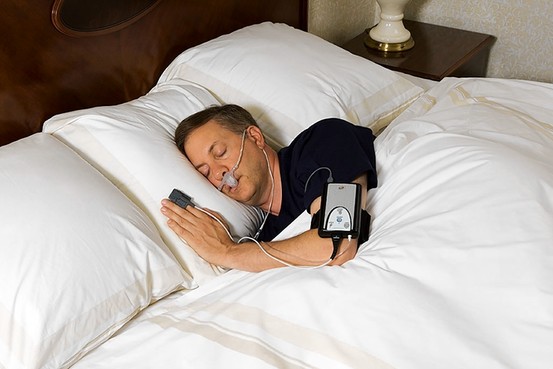The Importance of Sleep Study Tests for Detecting Sleep Apnea
Sleep apnea is a common yet severe sleep disease that affects millions of individuals worldwide. It occurs when a person's breathing regularly stops and starts during sleep, resulting in disrupted sleep and potential health concerns. Detecting sleep apnea early is critical for efficient treatment and avoiding associated complications.
A sleep study test is an important diagnostic tool that helps identify sleep apnea and guide proper treatment approaches.
What is Sleep Apnea?
Sleep apnea is defined by pauses in breathing or short breaths while asleep. These disruptions might happen several times during the night, disrupting the regular sleep cycle and limiting oxygen delivery to essential organs. There are two major types of sleep apnea:
Obstructive Sleep Apnea: This is the most common type of sleep disordered breathing, where the airway collapses or becomes blocked during sleep, leading to pauses in breathing.
Central Sleep Apnea (CSA): It is a less common condition in which the brain fails to send signals to the muscles that control breathing.
Signs & Symptoms of Sleep Apnea
Recognizing the signs and symptoms of sleep apnea is critical for receiving timely medical attention. Common indicators are:
Loud and persistent snoring
Symptoms may include pauses in breathing or choking sensations when sleeping, as well as excessive daytime tiredness.
Morning headaches.
Difficulty concentrating
Irritability or mood fluctuations
Importance of Sleep Study Tests
A sleep study, also known as polysomnography (PSG) or home sleep apnea testing (HSAT), is a diagnostic examination that measures several components of your sleep in order to diagnose sleep disorders, including sleep apnea. Here's why sleep study tests are necessary:
1. Accurate Diagnosis
Detailed information that's revealed under sleep study tests for sleep apnea includes your sleep patterns, breathing, oxygen levels, heart rate, and body movements while asleep. This data allows healthcare providers to diagnose the presence and severity of sleep apnea correctly.
2. Differentiates Types of Sleep Apnea
A sleep study exam can assist in distinguishing between the various types of sleep apnea (OSA and CSA). This is critical since treatment options differ depending on the kind and severity of sleep apnea discovered.
3. Guides Treatment Decisions
Once diagnosed, the sleep study results help healthcare experts establish a suitable treatment plan. Sleep apnea treatment options include lifestyle adjustments, continuous positive airway pressure (CPAP) therapy, dental appliances, and, in severe cases, surgery.
4. Monitors Treatment Effectiveness
Follow-up sleep study tests may be performed on people who are receiving treatment for sleep apnea to monitor the effectiveness of the therapy. Based on the results, adjustments can be made to ensure that the condition is managed optimally.
Preparing for a Sleep Study Test
Before the test, you may be recommended to avoid coffee and certain drugs. You will travel to a sleep facility and sleep in a specially prepared room for the exam. Sensors will be attached to your body without causing any pain. The sensors are linked to a computer that monitors your body's activities throughout the night as you sleep normally.
If you’re looking for telemedicine specialists to consult for your sleep apnea, you may reach out to eSleepCenter. Their online sleep apnea specialists will provide you with complete treatment without the need to visit a physical clinic and right in the comfort of your home.
To Conclude
Sleep study exams are critical for diagnosing sleep apnea and other sleep disorders. They provide useful information about your sleep habits, allowing doctors to propose appropriate treatments to improve your quality of life.
If you suspect you have sleep apnea or are experiencing symptoms like loud snoring and daytime tiredness, go to your doctor. Early detection and treatment can make a big difference in treating sleep apnea and lowering its effects on your health.




Comments
Post a Comment